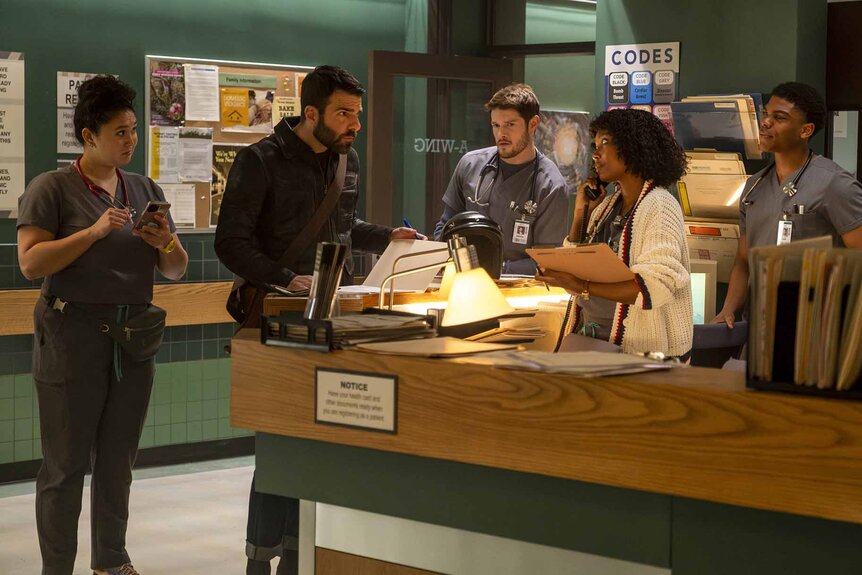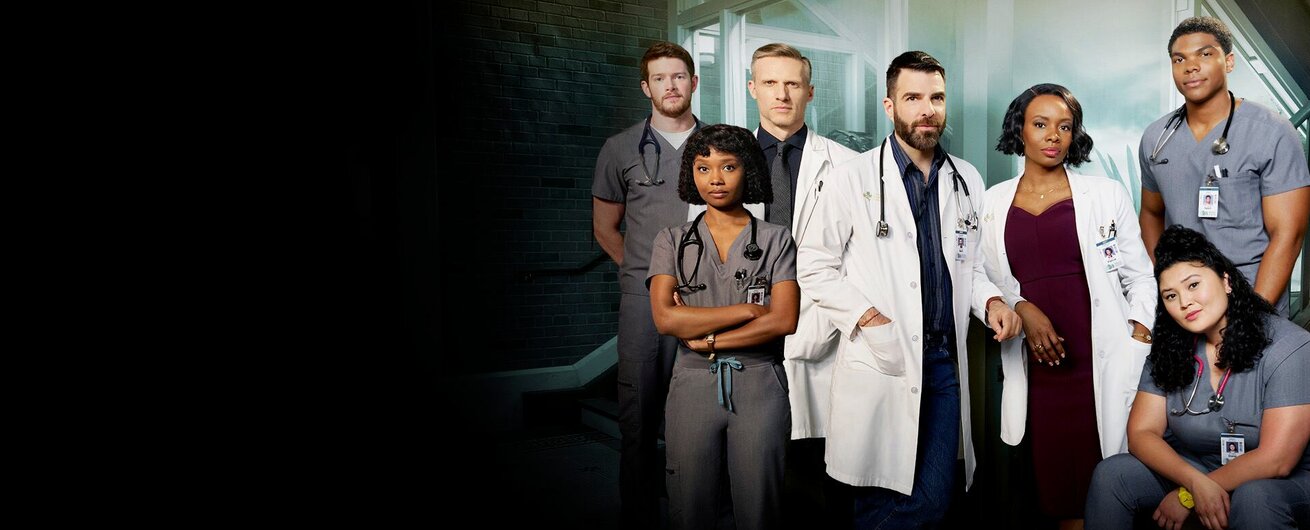How Brilliant Minds Is Following in the Footsteps of Monk & More: "It Destigmatizes"
Brilliant Minds actor Zachary Quinto and advisor Kate Edgars discuss the normalizing factor of the series.

When it comes to the variety of representation on television, it's remains an uphill climb to show a broader array of diversity when it comes to major and minor characters. That also goes for integrating more characters into our storytelling who possess physical and/or mental disabilities, to make it normal for all to see how they too exist in society like everyone else.
NBC's new medical drama Brilliant Minds is working to help forge new ground with that issue as it follows the daily patient rotations at Bronx General Hospital with Attending Neurologist Dr. Oliver Wolf (Zachary Quinto) and his specialization interns. Each week, they diagnose, treat, and help their patients figure out how to manage their conditions after discharge, which is no small thing when it comes to people getting to see others like them on screen.
RELATED: How Does the Real-Life Dr. Sacks Inspire Dr. Wolf in Brilliant Minds?
Actor Zachary Quinto and series consultant Kate Edgar, Sacks' friend, former editor, and the current director of The Oliver Sacks Foundation, shared their thoughts with NBC Insider about how mainstreaming neurological diagnosis can lead to more societal acceptance.
How platforming neurological diversity informs the masses
For better or worse, humanity learns a lot from television and film. In particular, one-hour procedurals — or "case of the week" shows — set within the worlds of medicine, law, and criminal investigation, often become important informational conduits to viewers learning about how to understand or even gain their own advocacy in fields where they aren't experts.
And that's why a series like Brilliant Minds has the potential to do a lot more good outside of just being an entertaining hour of television. Quinto said that he in part chose to lead this series because of its potential to make change and amplify voices.
"I think that's what we want to be able to do, is encourage conversations," he said. "I've always said, if people watch our show and they see themselves in these characters and in these stories, then we're doing our jobs. I think that is what we're inviting people into, and I hope what people take away from it."
RELATED: Meet the Brilliant Cast Behind NBC's Medical Drama Brilliant Minds
In just its opening weeks, Brilliant Minds has already introduced major ailments like Alzheimer's, Capgras Syndrome, acute polyneuropathy, brain tumors, epilepsy seizures, and even Wolf's own prosopagnosia, or "face blindness" condition. And there's a whole season to go of primary and secondary cases inspired by the real case studies of world-renowned neurologist and writer Dr. Oliver Sacks (1933-2015).
"Not that long ago, let's say in the '80s and '90s, Tourette syndrome was a very little known disease," Edgar said of the common neurodevelopmental disorder that typically presents with vocal and physical tics. "An incredible percentage of people who came to realize that they had it realized that because they heard about it on the Phil Donahue Show, on Oprah, or they heard people on TV talking about it.
"Or, a little bit later, audiences start seeing television shows like Monk with people being portrayed with these [neurological] conditions," she continued. "I think it destigmatizes and makes it much, much easier for people to live with whatever condition they may have and to feel comfortable themselves, or to help their friends understand what it is."
Watch new episodes of Brilliant Minds when they premiere on Mondays on NBC at 10/9c. Episodes are available to stream on Peacock the next day.





